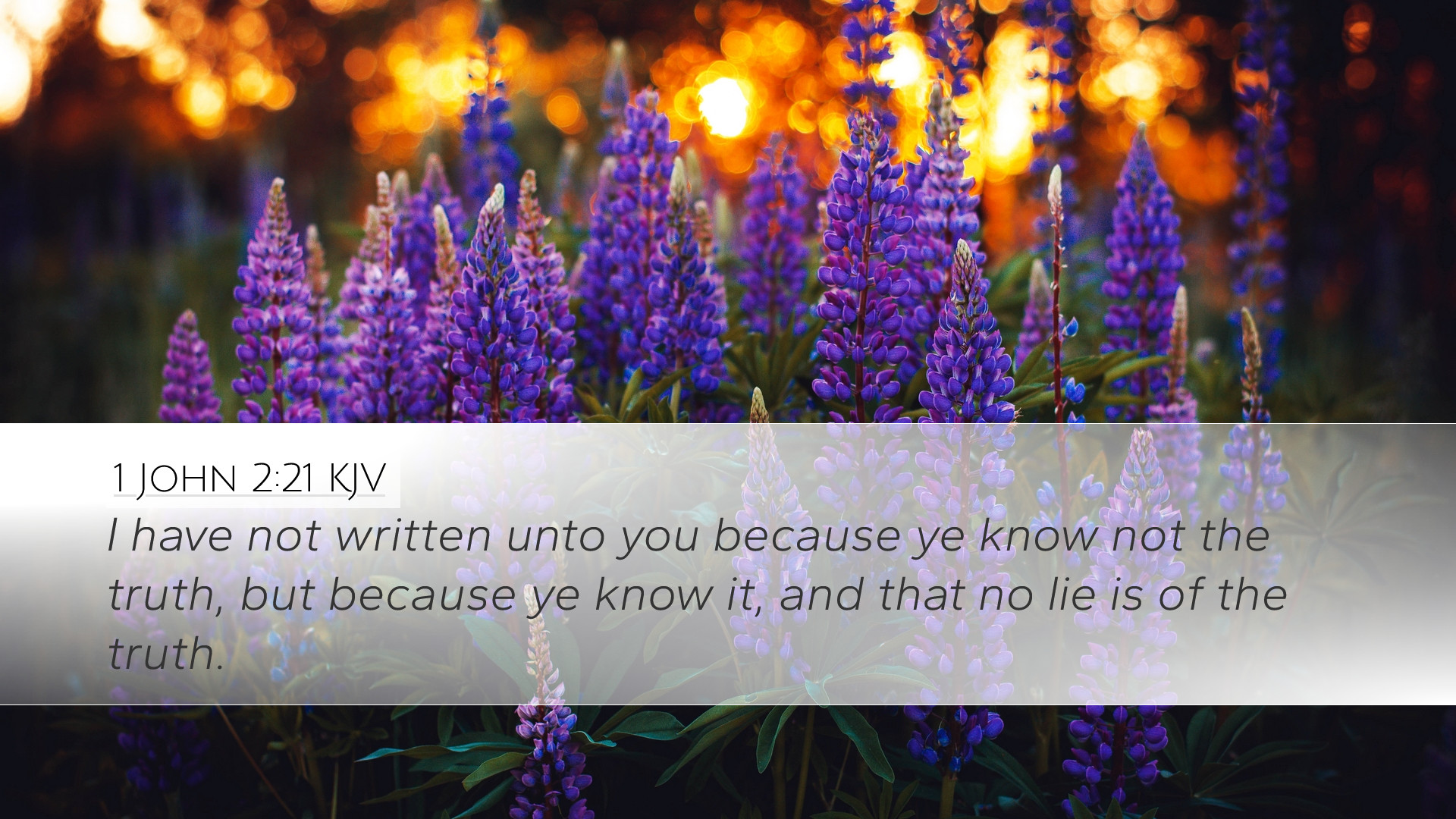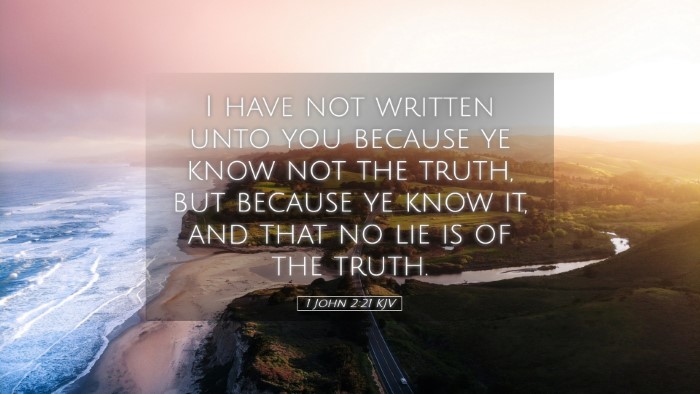Old Testament
Genesis Exodus Leviticus Numbers Deuteronomy Joshua Judges Ruth 1 Samuel 2 Samuel 1 Kings 2 Kings 1 Chronicles 2 Chronicles Ezra Nehemiah Esther Job Psalms Proverbs Ecclesiastes Song of Solomon Isaiah Jeremiah Lamentations Ezekiel Daniel Hosea Joel Amos Obadiah Jonah Micah Nahum Habakkuk Zephaniah Haggai Zechariah MalachiVerse
1 John 2:1 1 John 2:2 1 John 2:3 1 John 2:4 1 John 2:5 1 John 2:6 1 John 2:7 1 John 2:8 1 John 2:9 1 John 2:10 1 John 2:11 1 John 2:12 1 John 2:13 1 John 2:14 1 John 2:15 1 John 2:16 1 John 2:17 1 John 2:18 1 John 2:19 1 John 2:20 1 John 2:21 1 John 2:22 1 John 2:23 1 John 2:24 1 John 2:25 1 John 2:26 1 John 2:27 1 John 2:28 1 John 2:29

